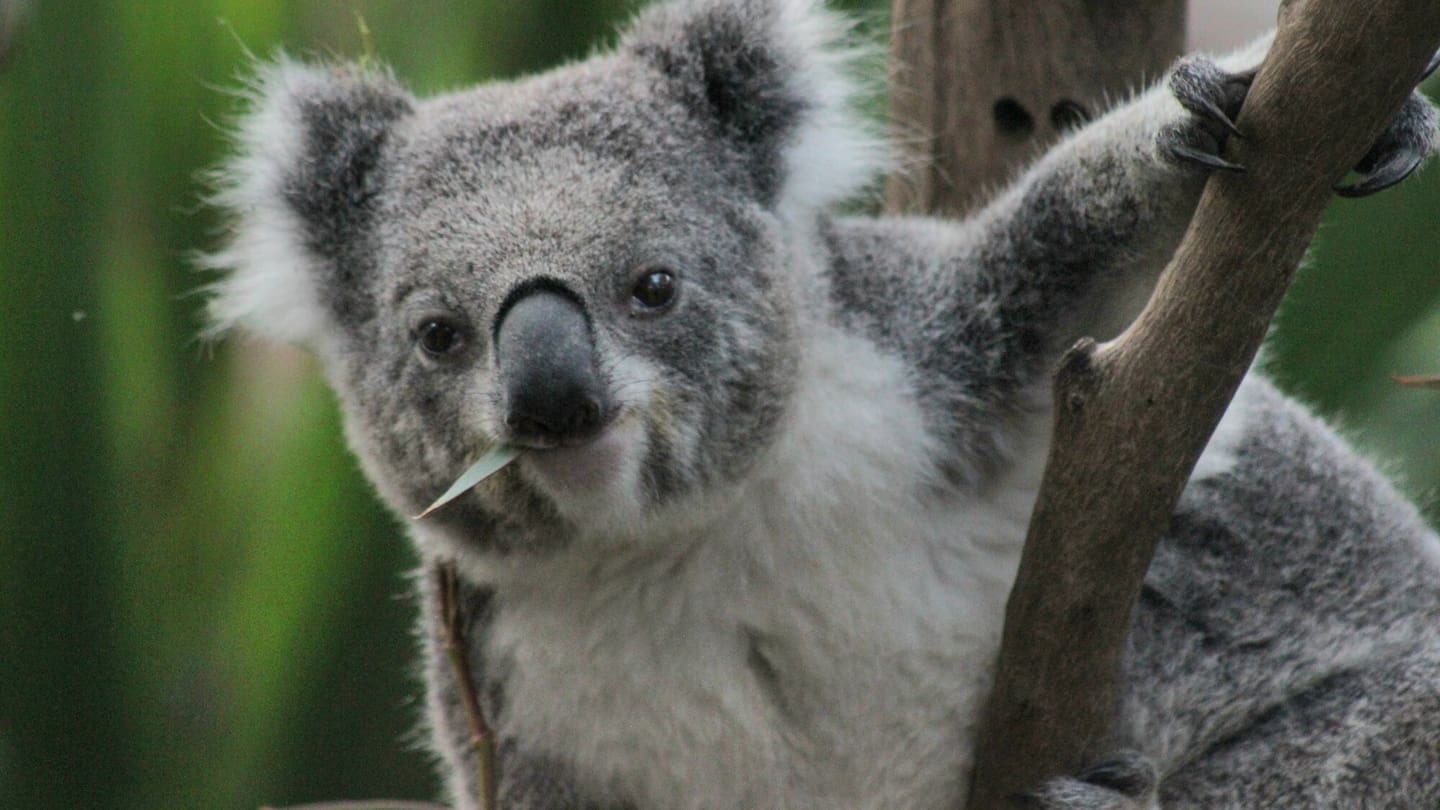Health
Australia Approves Koala Vaccine to Combat Chlamydia Threat

Australia has taken a significant step to protect its iconic koala population by approving a chlamydia vaccine, according to researchers from the University of the Sunshine Coast. The vaccine aims to combat a sexually transmitted disease that has been linked to approximately half of all koala deaths in the wild. With the approval from the veterinary medicine regulator, this single-dose vaccine is set for a national rollout.
The lead researcher, Professor Peter Timms, emphasized the urgent need for such intervention, noting that chlamydia is driving wild koalas to the brink of extinction, particularly in regions of southeast Queensland and New South Wales. In these areas, infection rates can reach alarming levels, with studies indicating that up to 70% of koalas may be infected.
Vaccine Trials Show Promising Results
Over the past decade, scientists have conducted trials of the chlamydia vaccine in controlled settings. The results have been promising, showing that the vaccine reduces the likelihood of koalas developing the disease during their breeding years. Additionally, it has been shown to decrease mortality rates in wild populations by at least 65%.
Previously, antibiotics were the only available treatment for koalas suffering from chlamydia. However, this method disrupted their digestive systems and did not provide protection against future infections. Chlamydia, first identified in koalas around 50 years ago, can lead to severe health issues, including blindness, bladder infections, infertility, and ultimately death.
Impact on Koala Populations and Conservation Efforts
The toll of chlamydia on Australia’s koala population is severe. While the native species are known to be shy and difficult to count, government estimates suggest that between 95,000 and 238,000 koalas inhabit the eastern states of Queensland, New South Wales, and the Australian Capital Territory. Additionally, another 129,000 to 286,000 are thought to reside in Victoria and South Australia.
The challenges facing koalas extend beyond disease. Urban expansion, land clearance, and the spread of chlamydia are all contributing to declining populations of these beloved marsupials. Australia has the highest rate of mammal extinction in the world, with around 100 unique species disappearing over the last 123 years.
In a bid to safeguard local koala populations, Australia recently halted logging in a substantial area along the eastern coast. This initiative aims to create a refuge for koalas, ensuring their survival in the face of mounting threats. The approval of the chlamydia vaccine, combined with concerted conservation efforts, represents a hopeful turn in the fight to protect Australia’s native wildlife.
-

 World3 months ago
World3 months agoTest Your Knowledge: Take the Herald’s Afternoon Quiz Today
-

 Sports3 months ago
Sports3 months agoPM Faces Backlash from Fans During Netball Trophy Ceremony
-

 Lifestyle3 months ago
Lifestyle3 months agoDunedin Designers Win Top Award at Hokonui Fashion Event
-

 Sports3 months ago
Sports3 months agoLiam Lawson Launches New Era for Racing Bulls with Strong Start
-

 Lifestyle3 months ago
Lifestyle3 months agoDisney Fan Reveals Dress Code Tips for Park Visitors
-

 World3 months ago
World3 months agoCoalition Forms to Preserve Māori Wards in Hawke’s Bay
-

 Health3 months ago
Health3 months agoWalking Faster Offers Major Health Benefits for Older Adults
-

 Politics3 months ago
Politics3 months agoScots Rally with Humor and Music to Protest Trump’s Visit
-

 Top Stories3 months ago
Top Stories3 months agoUK and India Finalize Trade Deal to Boost Economic Ties
-

 World3 months ago
World3 months agoHuntly Begins Water Pipe Flushing to Resolve Brown Water Issue
-

 Entertainment3 months ago
Entertainment3 months agoExperience the Excitement of ‘Chief of War’ in Oʻahu
-

 Science3 months ago
Science3 months agoNew Interactive Map Reveals Wairarapa Valley’s Geological Secrets









